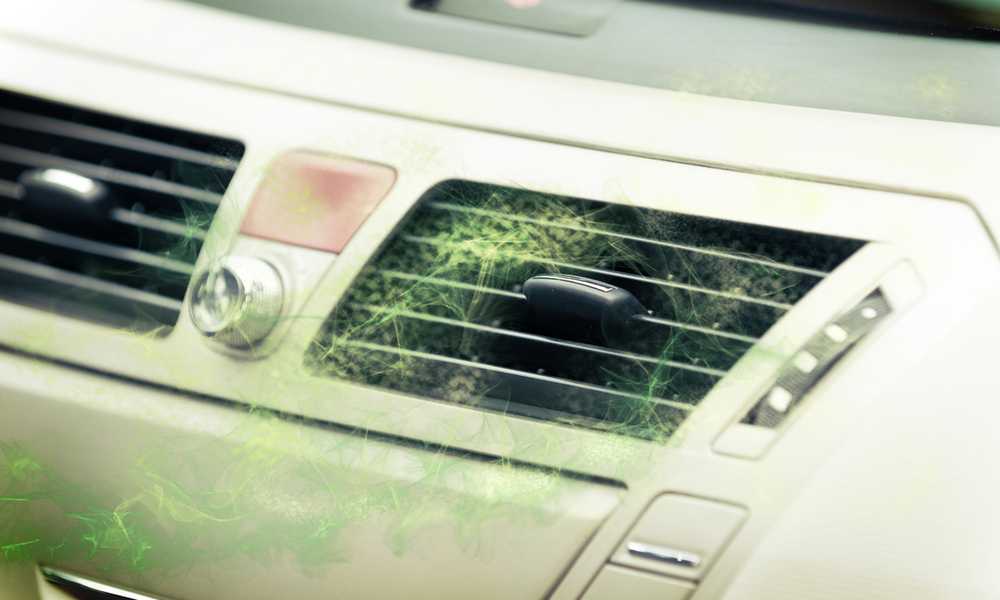Is there anything more concerning than the smell of burning oil emanating from your car? That pungent, acrid odor can quickly turn a pleasant drive into a worrisome experience. But fear not! In this blog post, we’ll delve into the causes behind that dreaded burning oil smell from car and provide you with some valuable tips on how to fix it. So buckle up and let’s get started on solving this oily mystery! Whether it’s due to oil consumption, engine overheating, or an elusive leak, we’ve got you covered with all the answers you need. Say goodbye to that unpleasant scent and hello to peace of mind on the road ahead!
What causes the burning oil Smell from car?
When that unmistakable scent of burning oil infiltrates your car, there are a few potential culprits to consider. Let’s take a closer look at some common causes:
1. Burning oil smell due to oil consumption
Have you ever noticed a burning oil smell coming from your car? It can be quite concerning, but don’t panic just yet. One possible cause of this odor is oil consumption.
When an engine burns oil internally, it can create a distinct smell that resembles burning rubber or exhaust fumes. This happens when the engine’s piston rings or valve seals wear out over time, allowing oil to seep into the combustion chamber and burn along with the fuel mixture.
If your car has high mileage or hasn’t had regular maintenance, it may be more prone to oil consumption. Additionally, using low-quality or incorrect viscosity oil can contribute to increased consumption.
To fix this issue, it’s important to address any underlying mechanical problems causing the excessive oil burning. Replacing worn-out piston rings or valve seals may be necessary to alleviate the problem and eliminate the burning oil smell.
Regularly checking your vehicle’s fluid levels and changing the engine oil as recommended by your car manufacturer is crucial in preventing excessive oil consumption and avoiding potential costly repairs down the line. Remember, if you notice a persistent burning oil smell coming from your car, it’s best to have it inspected by a qualified mechanic who can accurately diagnose and resolve any issues causing this unpleasant odor.
2. Engine overheating due to mechanical issues

When it comes to a burning oil smell from your car, one possible cause could be engine overheating due to mechanical issues. An overheating engine can lead not only to the burning oil smell but also potential damage to various components of your vehicle.
There are several mechanical issues that can result in engine overheating and the accompanying burnt oil odor. One common problem is a malfunctioning cooling system. This could be caused by a faulty radiator, water pump, thermostat, or coolant leak. When these components fail to regulate the engine’s temperature properly, it can lead to overheating and subsequent oil burning.
Another possible culprit for an overheated engine is a broken or worn-out fan belt. Without a functioning fan belt, the cooling fans will not operate correctly, resulting in inadequate airflow through the radiator and increased heat accumulation within the engine.
Additionally, problems with the engine’s lubrication system can contribute to overheating and burning oil smells. A clogged or failing oil filter can restrict proper lubrication flow, causing friction between moving parts and generating excessive heat.
It is important not to ignore any signs of an overheating engine as continued driving under such conditions may result in severe damage that could require costly repairs or even necessitate replacing the entire engine. If you notice a burning oil smell accompanied by rising temperature gauges on your dashboard, it is advisable to pull over safely as soon as possible and have your vehicle inspected by a qualified mechanic.
Remember that addressing mechanical issues promptly will help prevent further damage and ensure optimal performance of your car’s systems while eliminating unpleasant odors caused by burning oil.
3. Oil leak causing burning oil smell
An oil leak can be a common culprit when it comes to that pesky burning oil smell in your car. When there is a leak, the oil can come into contact with hot engine parts and start to burn, creating that unmistakable odor. But what causes an oil leak in the first place?
One possibility is a faulty gasket or seal. Over time, these components can wear out and develop cracks or gaps, allowing oil to escape. Another potential cause could be a damaged or loose oil filter. If the filter is not properly sealed or has been punctured, it can lead to leaks.
Finding the source of an oil leak can sometimes be tricky as it may not always be visible from underneath the car. It’s important to regularly check your vehicle for any signs of leakage such as puddles under the engine or a drop in oil levels on the dipstick.
If you suspect an oil leak is causing that burning smell, it’s best to have it inspected by a professional mechanic. They will be able to identify the exact location of the leak and recommend necessary repairs. Remember, ignoring an oil leak can lead to serious engine damage over time, so addressing it promptly is crucial for both your safety and wallet!
How can I fix burning oil smell from car?
If you’re experiencing a burning oil smell coming from your car, it’s important to address the issue promptly. Not only can this odor be unpleasant, but it may also indicate an underlying problem with your vehicle. Fortunately, there are several steps you can take to fix the burning oil smell and ensure that your car is running smoothly.
Check for any visible signs of an oil leak. Inspect the engine compartment and underneath the car for any drips or puddles of oil. If you notice a leak, it’s crucial to have it repaired as soon as possible. This may involve replacing a gasket or seal or tightening loose connections.
If there are no apparent leaks, consider checking your oil consumption levels. Low oil levels can lead to overheating and subsequent burning smells. Ensure that you regularly check and top up your engine oil according to manufacturer recommendations.
Additionally, keeping up with regular maintenance such as changing the filters and performing routine inspections will help prevent issues like clogged valves or dirty spark plugs which could contribute to a burning smell.
If none of these steps alleviate the problem, consult with a qualified mechanic who can diagnose and address any mechanical issues causing the burning smell in your car. Remember that addressing a burning oil smell promptly is essential for maintaining the health of your vehicle and ensuring safe driving conditions.
Why does my car smell like burning oil but no leak?

One of the most frustrating situations for car owners is when they notice a strong burning oil smell coming from their vehicle, but can’t find any visible signs of an oil leak. It’s a perplexing problem that can leave you scratching your head and wondering what could be causing the odor.
There are several reasons why your car might smell like burning oil even if there is no apparent leak. One possibility is that the oil has dripped onto hot engine components, such as the exhaust manifold or catalytic converter, and is vaporizing upon contact. This can create a lingering scent of burnt oil in the air.
Another potential cause could be worn-out gaskets or seals within the engine. Over time, these components can deteriorate and allow small amounts of oil to escape into areas where it shouldn’t be, such as onto hot surfaces or into airflow pathways.
Additionally, excessive blow-by gases from worn piston rings or valve guides may also contribute to the burning oil smell without any visible leaks. These gases can carry traces of burnt motor oil with them as they pass through various parts of the engine.
If you’re experiencing this issue with your car, it’s important not to ignore it. Although it may not be an immediate cause for concern, prolonged exposure to burning odors could indicate underlying mechanical problems that need attention. It’s best to have your vehicle inspected by a qualified mechanic who can diagnose and address any issues before they escalate into more serious and costly repairs.
Remember, diagnosing automotive issues requires expertise beyond just visual inspection; sometimes hidden leaks or internal engine problems are responsible for that elusive burning oil smell you’ve been noticing in your car.
Burning smell from car but not overheating
If you’ve noticed a burning smell coming from your car but it’s not overheating, there could be several reasons behind this mysterious odor. While it’s always best to have a professional mechanic inspect your vehicle for an accurate diagnosis, here are some potential causes to consider.
One possible explanation is that oil may be leaking onto the hot engine parts or exhaust system, causing the burning smell. Even if there isn’t a visible leak, small amounts of oil can still make their way onto these components and create the odor.
Another possibility is that other fluids like coolant or transmission fluid might be dripping onto the engine and producing a similar scent. These leaks can often go unnoticed until they start emitting an unpleasant smell.
In some cases, debris such as leaves or plastic bags may have become stuck near the exhaust system and started to burn when heated by the exhaust pipes. This can create an alarming smoky smell without necessarily indicating any major issues with your car.
It’s also worth noting that certain electrical malfunctions in your car’s wiring or components could cause insulation to melt and produce a burning odor. If you suspect this might be the case, it’s essential to address these electrical problems promptly as they can lead to more significant issues down the road.
Remember, while identifying potential causes on your own is helpful for understanding what might be happening under the hood of your car, it’s always advisable to consult with a qualified mechanic for an accurate diagnosis and appropriate repairs.
Can a transmission leak smell like burning oil?
Many car owners may wonder if a transmission leak can cause a burning oil smell. The answer is not as straightforward as you might think.
A transmission leak and a burning oil smell are two separate issues that can occur in a car. A transmission leak usually results in the loss of transmission fluid, which has its own distinct odor. This odor can be described as a sweet or burnt smell, rather than the typical scent of burning oil.
However, it’s important to note that if the leaking transmission fluid comes into contact with other components under the hood, such as engine oil or exhaust pipes, it can create a mixed scent that resembles burning oil. In this case, even though there may not be an actual oil leak, the combination of fluids can produce an odor similar to burning oil.
If you suspect your car has a transmission leak and are experiencing a burning oil smell, it’s crucial to have your vehicle inspected by a professional mechanic. They will be able to identify any leaks and determine whether they are causing the unusual odor. In conclusion (not concluding), while a transmission leak itself may not directly cause a burning oil smell from your car, it is possible for the combination of leaked fluids to create such an aroma.
Can I continue driving my car with a burning oil smell?
If you notice a strong burning oil smell coming from your car, it’s important not to ignore it. While the smell itself may not be an immediate cause for concern, it could indicate underlying issues that need attention. Continuing to drive your car with a burning oil smell can potentially lead to further damage and costly repairs down the line. The smell is often associated with oil consumption or leaks, which can affect the performance and longevity of your engine.
Driving with low levels of oil due to consumption or leaks can cause increased friction between moving parts, leading to excessive wear and tear. This can eventually result in engine failure if left unchecked. Additionally, an overheating engine caused by mechanical issues can also produce a burning oil smell. Ignoring this problem can lead to severe damage to vital components such as gaskets, seals, and piston rings.
It’s always best to address any concerns about a burning oil smell promptly by consulting a qualified mechanic. They will be able to diagnose the issue accurately and recommend appropriate repairs or maintenance procedures. Remember, ensuring the health of your vehicle should always be prioritized for both safety reasons and cost-effective maintenance in the long run!
Do I need a new engine if my car is burning oil?
If you’ve noticed a burning oil smell coming from your car, you may be wondering if it’s time to start shopping for a new engine. While it can be concerning, there are several factors to consider before jumping to such a drastic conclusion.
It’s important to determine the cause of the burning oil smell. In some cases, the issue may be as simple as an oil leak or excessive oil consumption. These issues can often be resolved with minor repairs or maintenance.
However, if the burning oil smell is accompanied by other symptoms such as smoke coming from the exhaust or loss of power while driving, it could indicate more serious internal engine problems. This might include worn piston rings or valve seals that are allowing oil to seep into the combustion chamber and burn along with fuel.
Before deciding on whether you need a new engine, it’s best to consult with a qualified mechanic who can accurately diagnose the problem and provide expert advice. They will assess the extent of damage and recommend appropriate solutions based on their findings.
Remember that each situation is unique and there is no one-size-fits-all answer when it comes to needing a new engine due to burning oil. So don’t jump to conclusions just yet! Seek professional guidance first in order to make an informed decision about your vehicle’s future.
How much does it cost to fix a car burning oil?

When it comes to fixing a car that is burning oil, the cost can vary depending on several factors. The first factor to consider is the cause of the burning oil smell. Is it due to oil consumption, engine overheating, or an oil leak? Identifying the root cause will help determine the extent of repairs needed.
If it’s a simple case of excessive oil consumption, where your car is burning more oil than usual, fixing this issue may be relatively inexpensive. It could involve replacing worn-out piston rings or valve seals, which can cost anywhere from $200 to $500.
However, if the burning oil smell is due to engine overheating caused by mechanical issues such as a faulty radiator or thermostat, repairs could be more extensive and costly. This might involve replacing these components along with addressing any damage caused by overheating. Expect costs ranging from $500 up to $1500 or more.
In cases where there’s an oil leak causing the burning smell and no visible signs of leakage are present, diagnosing and repairing this problem can be challenging and may require professional assistance at a higher price point. Depending on the location and severity of the leak, costs for repairs can range from hundreds to thousands of dollars.
It’s essential not only to address a car that is burning oil but also consider potential long-term consequences if left untreated. Ignoring this issue could lead to further damage and possibly even engine failure in extreme cases – which would undoubtedly result in costly repairs like installing a new engine.
Keep in mind that these estimates are rough guidelines and actual repair costs can vary widely depending on factors such as make/model/year of your vehicle, labor rates in your area, availability of parts required for repair – among others. Therefore it’s always recommended reaching out to trusted mechanics or garages for accurate quotes tailored specifically for your situation.
Can a car burning oil catch fire?
Can a car burning oil catch fire? It’s a valid concern for anyone experiencing the smell of burning oil in their vehicle. While the smell itself may be alarming, it doesn’t necessarily mean that your car is at risk of bursting into flames. However, it is important to address the issue promptly to prevent any potential hazards.
When oil leaks or spills onto hot components within the engine bay, such as exhaust manifolds or other heated surfaces, it can result in a burning odor. This can lead to smoke and even small fires under certain circumstances. While these incidents are rare, they should not be ignored.
To minimize the risk of a fire caused by burning oil, it is essential to identify and fix any leaks or issues with your car’s engine. Regular maintenance and inspections can help detect problems early on before they escalate into more serious issues.
If you notice a burning oil smell in your car accompanied by visible smoke or signs of overheating, pull over safely and turn off the engine immediately. Contacting a professional mechanic for assistance is highly recommended. Remember, addressing any potential problems promptly will not only ensure your safety but also prevent further damage to your vehicle.
Final thoughts

Dealing with a burning oil smell from your car can be concerning, but it’s important not to panic. While there are several potential causes for this odor, such as oil consumption, engine overheating, or an oil leak, the good news is that most of these issues can be resolved.
If you notice a burning oil smell coming from your car, it’s crucial to address the problem promptly. Ignoring it could lead to more significant and costly damage down the line. Start by checking your oil levels regularly and topping up if necessary. If you suspect an oil leak or notice any other mechanical issues, it’s best to consult with a qualified mechanic who can diagnose and fix the problem.
In some cases, you may wonder why your car smells like burning oil but find no visible leaks. This situation could indicate that the issue lies within your engine or exhaust system rather than an external leak. Again, seeking professional help is recommended to pinpoint and resolve the root cause.
It’s worth noting that a burning smell from your car doesn’t always mean overheating is occurring. However, if you do notice both symptoms simultaneously—burning odor and overheating—it’s vital to pull over safely and have your vehicle inspected immediately.
While transmission fluid leaks are less likely to produce a burning oil smell compared to engine-related issues, they can still contribute to unpleasant odors in certain circumstances. It’s essential not only to maintain proper transmission fluid levels but also monitor for any signs of leakage or unusual smells.
When faced with a burning oil smell in your car, it might be tempting just to ignore it and continue driving as usual. However, doing so could lead to severe consequences in terms of engine damage or even fire hazards under extreme conditions. Therefore, it’s prudent not take chances when dealing with this issue; consult with professionals right away. The cost of fixing a car that burns excessive amounts of oil will vary depending on various factors, such as the extent of the damage and the specific repairs needed. It’s



